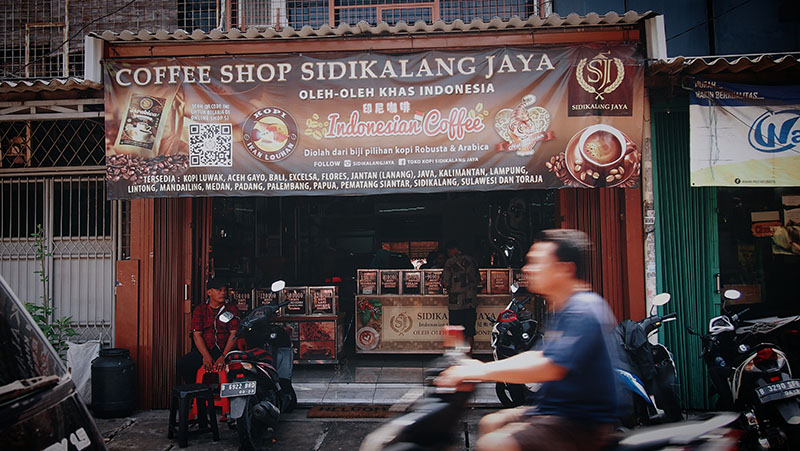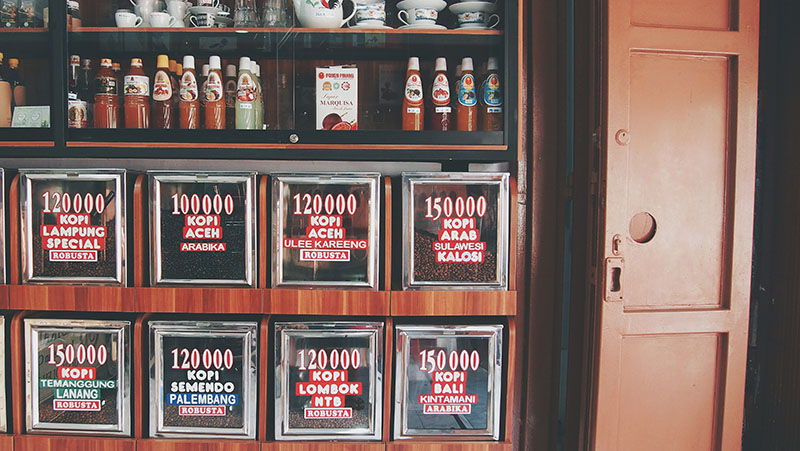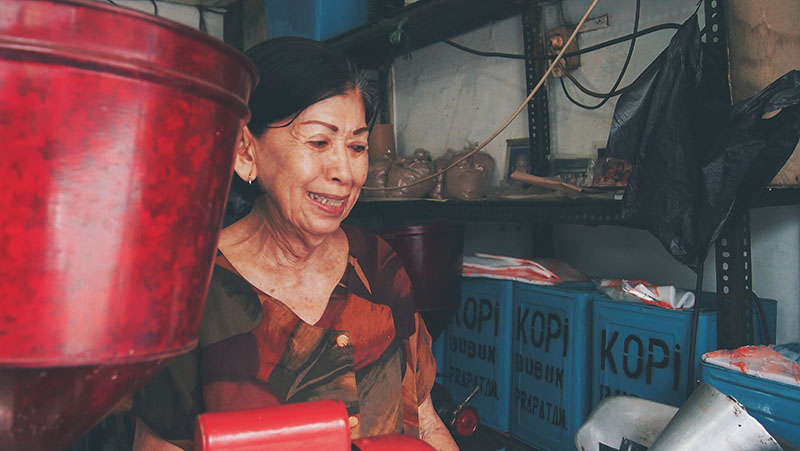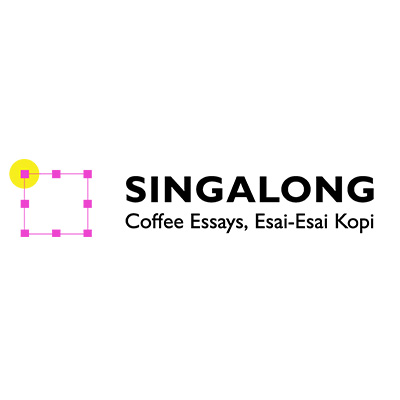Micro-Roastery Robusta di tengah Gelombang Kopi Ketiga
INDAH FEBRYYANI
What comes to your mind when you hear the word Robusta? Bold? Bitter? Manly? Then, congratulations! You’re one out of many Indonesians who associate coffee, especially Robusta, with the three descriptions above.
It’s not a mistake if Robusta coffee is now strongly associated to be the coffee for ‘men’. Over the past hundreds of years, Robusta has dominated the world market. Ever since the darkly-roasted ground coffee hits mass market and marks the First Wave, people all over the world are falling for this caffeine-rich, black coffee. But since the last decade or so, the specialty Arabica market began to rise and shift the way we enjoy coffee.
Today, Indonesia is also transitioning to cater the specialty coffee market. Specialty coffee shops have sprung up in the last 5 years, famously called Coffee’s Third Wave. According to Financial Times report and Euromonitor in May 2016, there are 1,083 coffee shop outlets in Indonesia, with most of them concentrating in the capital area. Euromonitor predicts this figure to grow roughly 7% every year until 2020.
Of course, more coffee shops means higher coffee consumption. According to Indonesian Plantation Statistics in 2017, coffee production totaled at 637,539 tons. The question is, how much of that was Robusta? Robusta coffee is approximately 83% and the remaining is Arabica.
So how come that even in the third wave era, Robusta still outperformed the Arabica production?
It turns out that if you look further in Jakarta, there are many home-based coffee roasters that use Robusta. One of these areas is Jelambar, West Jakarta. There are approximately three micro-roasteries, two of which focus on Robusta from Lampung, Sidikalang, Toraja, and even Aceh Takengon. The quality also varies from Fine Robusta to grade quality. East Jakarta also has the same scheme and is located in Jatinegara. Entering Mester, we will be treated to a variety of local coffee traders who do their own roasting with Robusta. Many coffee shops and micro-roasteries in Jelambar are managed by Chinese-descent families and are located in their own homes-turned-shops.

Having the opportunity to talk with interview one of the micro-roastery owners in the Jelambar area, Lim Kim Hoa (Cik Lis), there are a lot of stories to tell about the home-based coffee roastery. “I opened the Aroma Prapatan store almost 38 years ago. I’m 80 years old now and I handle everything on my own, from grinding to packing,” Cik Lis sat and showed us a row of cans of coffee. The cans look ordinary, just like the cracker cans you’d find in a warung, but painted blue with the name of the shop written bold and centered.

When asked whether the rise of specialty Arabica market affects her business at all, Cik Lis simply stated that the demand for ground Robusta remain steady and strong for the last three years.
“Robusta coffee market tends to be more stable. Of the last three decades, the majority of our coffee drinkers still consume a lot of Robusta. ”
True, even with the rising number of coffee shops and the growing specialty Arabica sector that craves Origin profiles, most people in Jakarta are still Robusta coffee drinkers. Imagine our parents and older generations, laborers, public transportation drivers, even office staff, need caffeine kicks several times a day to work. With its caffeine level that is close to double than that of Arabica, for many people, ngopi (drinking coffee) is a necessity.

Regarding to its market segment, Cik Lis admits that many buy her coffee for daily consumption at home. In addition to that, there is also a small number of people that buy in big bulk for coffee supply in the office. The rest buys it as gifts who are leaving abroad. Cik Lis continued, “Robusta coffee is cheaper. Buyers are willing to purchase a big amount and make their own blend. Our Robusta is from Lampung and Toraja; good Arabica from Toraja and Medan.”
In fact, if we take it further, we can see a big impact, from hulu (crop) to hilir (cup), if Robusta market shrinks dramatically. In the Coffee Conversation article, Adi Taroepratjeka explained, “Without this corn coffee business, the harmonization of life in the coffee industry will be disrupted. If there is no more corn coffee, how many corn coffee farmers lose their jobs, so do the many instant coffee factory workers. “From this case it can be concluded that Robusta plays a major economic role from the crop sector to the end user, so its role can’t be underestimated.
Cik Lis even admitted that, even though her coffees are considerably cheap, she can still earn a lucrative turnover. “Each month I make cap tiao (ten million rupiah). I also sell cappuccino cincau (sweetened Robusta coffee with milk and grass jelly, usually served cold), and altogether, I can make cap go tiao (fifteen million rupiah). The total coffee sold in a month averages 50 kg, that’s on any regular months. Sales skyrocket rapidly every Eid or Christmas season. “

Who would have thought that a micro-roaster like Cik Lis could bring his grandchildren to school and live overseas where coffee culture is more sophisticated? Cik Lis’s second child lives in Sydney, Australia, together with her grandchildren and Cik Lis herself visits Australia quite often.
Occasionally tasting specialty coffee in Australia does not make her worry about the quality of her own products. “My coffee is delicious, bitter. Even with milk, it’s still good. Australia’s coffee is good, though more sour. They have better machines.” Even then, Cik Lis is not tempted to use modern machines. To this day, she is still using a vintage grinding machine made in China that was once Rp. 1,000,000. “There are three grinding machines. Now, I can’t use them for too long. Otherwise, it will go too hot and there’s a burning odor. If that’s the case, we just change it from one machine to another, no problem.”

Now, Cik Lis also sells Arabica at Rp. 25,000/100 gm, a very low number. However, this proves that Cik Lis is only a handful of coffee roasters who aren’t swept away by the modernization era. All sorts of ‘waves’ can come and go, but this kind of home-based business will remain strong against the tides of time.
All photos by writer
INDAH FEBRYYANI, or Nyo, is a student at Universitas Negeri Jakarta. You can find her at a local coffee shop MAU Coffee & Drinks with her husband.



